Stake Conference Addresses President Sabey and Blaylock - June 3 2017
President Sabey's Address
Our First Priority:
Partake of God’s love regularly.

Lehi’s vision of the tree of life teaches us to hold to Christ and move forward until we partake of God’s love, then to stay at the tree and continue partaking. We do this by developing thought patterns of faith, trusting our Savior and our Heavenly Father and their love for us. We do this by feasting on the word of God and praying in faith and humility daily. We do this by trusting that our Savior understands us completely, is our advocate, and will help us move forward on this path. We do this by understanding that our Savior is not only our advocate, but the advocate of each person with whom we interact. Satan is the accuser, the slanderer. Our Savior’s love and forgiveness is so much more powerful than we are. If we receive it we are filled with light and it proceeds right on through us to shine on others. There is no way to receive His forgiveness and at the same time prevent it for being extended to others. The only way to stop the light of His love from shining through our hearts to others is to prevent it from entering our hearts. Once it is there, it shines on everyone.
In the Book the Hiding Place that good Brother Martineau gave me many years ago, it tells of Corrie TenBoom and her sister Bessy, who were sent to a concentration camp for hiding Jews from the Nazis. They had grown up in a beautiful Christian home where they read from the Bible every day and practiced love and kindness. They clung to their faith, witnessed of Christ in the most difficult of circumstances, and blessed many others. One day they witnessed a guard, known for her cruelty to all prisoners, beating an elderly woman mercilessly. Bessie said, ‘Oh, Oh, the poor woman, we must pray for her.” Then Corrie realized that Bessie was talking about the guard. The truth is that people’s offenses carry their own serious penalties and limit their happiness, and we should feel more sorry for the sinner than the one sinned against. And the Savior loves all sinners. He knows that we tear and injure our souls when we have sin and enmity in our hearts. He knows our great anguish and suffering because he bore it all in the atonement. Because understands their pain and loves them so much, Jesus taught us to
Luke 6:27-28 Love your enemies, do good to them which hate you, Bless them that curse you, and pray for them which despitefully use you.
He taught us to not judge others, but to love and have charity, patience and longsuffering in our hearts. Thus, we receive the Savior’s love most fully as we allow it to shine in and through us so that we feel it radiating to those around us.
D&C 121 Let thy bowels … be full of charity towards all men, and to the household of faith.
Galatians 6:10 let us do good unto all men, especially unto them who are of the household of faith.
Why especially? Because it is a lot harder to love people you are closest to
Do I think changes need to be made in the Church? Yes, I do. We are imperfect people striving for Zion. Many great and important things are yet to be revealed. But the order in which we strive is important. Until we get to the point that we can pray and be confident in receiving answers from God, we should not be overly confident that our judgments about what needs to happen are accurate. If our connection with God is not right, we have more important things to worry about than fixing other Saints or the Church. We should strive to improve first ourselves, then our own church service, then the church organizations.
With regard to unity in the Church I want to share a simple principle from the vision of the tree of life that helps us make important judgments and helps us become happier people.
The internet is great and spacious, and it is out there floating it the air. Notice the great and spacious building in this picture how it has no foundation. The builders did not dig deep in their souls and build upon the Rock of our Redeemer. How do we know that they are not build upon the rock of Christ? Because they are accusers, not advocates.
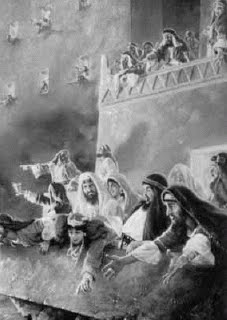
In Lehi’s dream, some people arrived at the tree, partook of the fruit and then started looking around as though they were ashamed. Then Lehi noticed the great and spacious building with people mocking and pointing the finger of scorn. They carried the spirit of the accuser, not the spirit of the advocate.

Lehi points out that all those who heeded the pointing and mocking from the great and spacious building, fell away and left the tree.

Notice the fruit on the ground. Receiving God’s love became so unimportant to them that they dropped it. It became unimportant because they could not feel it any longer.
I am not suggesting that everything on the internet is evil, but I give you a sure way to judge. If it helps you have the spirit of the advocate towards the church and others, including those of other opinions, it is good. If makes you feel the distressing spirit of the accuser, it is not of Christ. We bring about change much more effectively when we are working from a spirit of love and understanding. So much political rhetoric is hateful and evil. Joining an internet group is not an inconsequential decision. We must judge in our heart how it affects our spirit.
There is another group of people in Lehi;s dream. They arrived at the tree, fell down (in humility and gratitude) and then partook of the fruit. They all remained at the tree.

I love this picture of the woman kneeling humbly beneath the tree. Humble faith is the key, with an emphasis on humble.

In summary of the first priority, may come to the tree and receive divine love so that we are imbued with the spirit of the advocate. When the love of God and Christlike charity dwell in our hearts, we will be happier than we have ever been and nothing will be able to keep us from Zion.
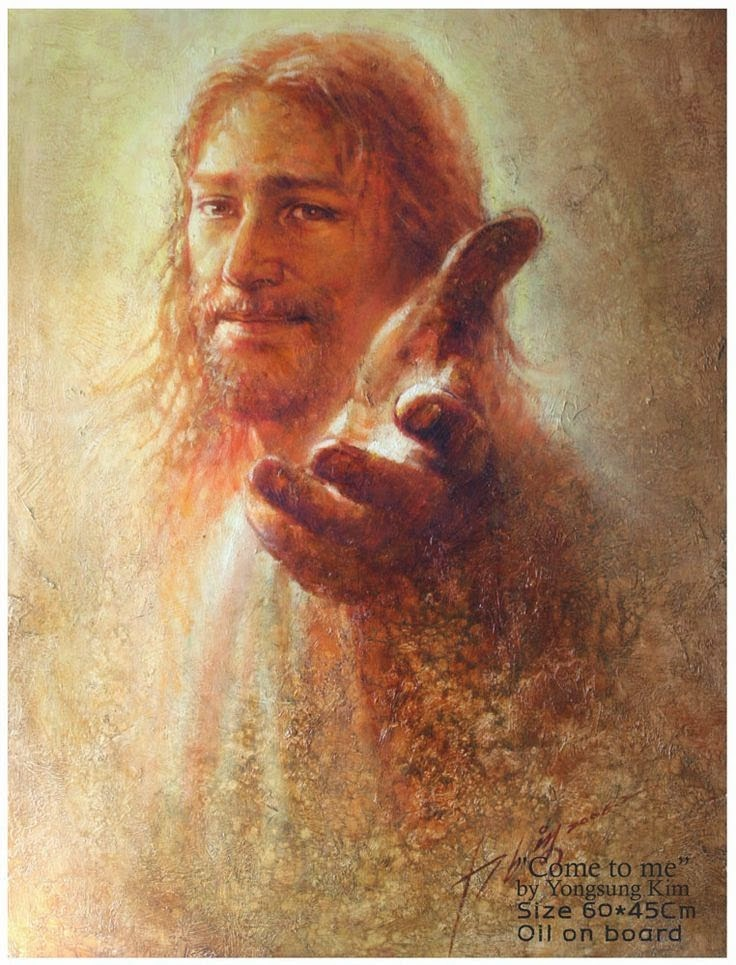
And along with the Savior, we will have the abundance that enables us to reach out to to others with open inviting arms of love. Along with the Savior, we will be able to say, come unto me all ye that labor and are heavy laden, and I will give you rest too. Here is a safe place to learn and grow. I too am your advocate.
Second:
Make the sacrament a weekly day of Atonement.
Let me explain about the day of atonement

Most sacred and holy day of the entire year under the law of moses
Serious
More Easter than christmas

A day of prayer, penitence and fasting.

Culmination of the day. People gathered at the temple.

Two goats were brought before the high priest.

Lots were cast to select one goat as a sacrificial offering and the other as the scapegoat. The first goat was sacrificed on the temple altar.

The scapegoat was brought in front of Aaron, the High Priest. The Book of Leviticus tells us what was next:
And Aaron shall lay both his hands upon the head of the live goat, and confess over him all the iniquities of the children of Israel, and all their transgressions in all their sins, putting them upon the head of the goat.
Then what happened to the goat laden with so many sins? Did they kill and sacrifice the goat? No. The sacrificial offering had already been made.
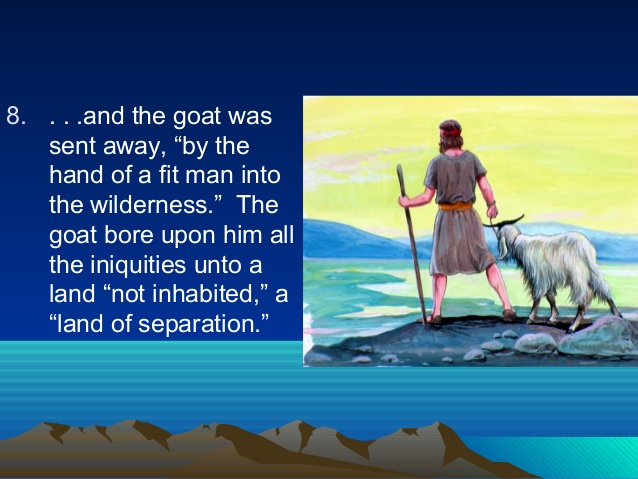
A fit man simply led the goat out of the temple, out of the temple grounds, out of the camp of Israel, out into the wilderness, and let it go.
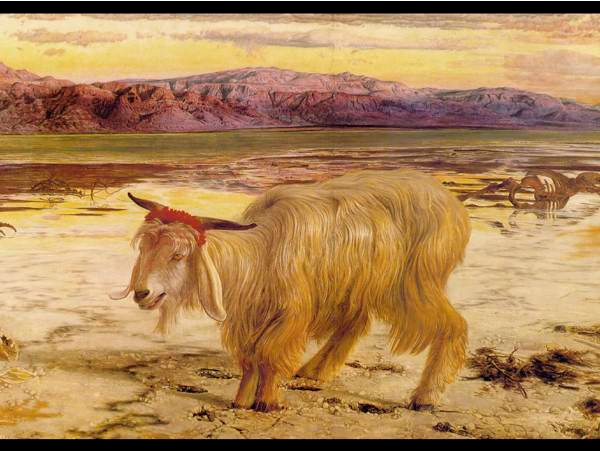
The goat was simply released, and left alone, never to return.
The first goat represents Christ’s atoning sacrifice in which Christ’s blood was shed and life was given. The second goat represents what that sacrifice means for us. The promise of cleansing, forgiveness and freedom from the past.

So, what would that experience be like for you if you participated with sincerity and real intent? Near the end of a day of penitence and fasting, you would arrive at the temple with a heavy heart, feeling burdened. You would be aware of your unkindness, dishonesty, pride, selfishness and other failings. You would feel sorrow for those of your family, neighborhood or community you had hurt or offended. All of them would be there. Then you would watch as all of your sins were confessed on the goat and placed on its head. Then you would see that goat led away, until it disappeared in the distance.

Suddenly you would feel clean and free. A completely fresh start. A clean slate. All of the burden of past transgressions and offenses was gone. If you had offended someone, it was gone. If someone had offended you, it was gone as well. Past offenses had been removed and could no longer be a consideration. There was a fresh start individually and in all relationships throughout the entire community. What an amazing feeling of relief and freedom and peace! What joy! What Zion!
This is what we can experience each week as we partake of the sacrament, all of us together. During the sacrament, we can think of the Day of Atonement. We can trust that my sins are gone and that the sins of others are gone as well. We can honestly forgive others their slights against me, and trust that we are forgiven by them as well. I love that feeling of freedom to move forward in all relationships with a spirit of peace and goodwill. As we exercise faith in Christ, the past will no longer be burden holding any of us back. We can move forward with a world of possibilities ahead of us, believing in the best that is in us.
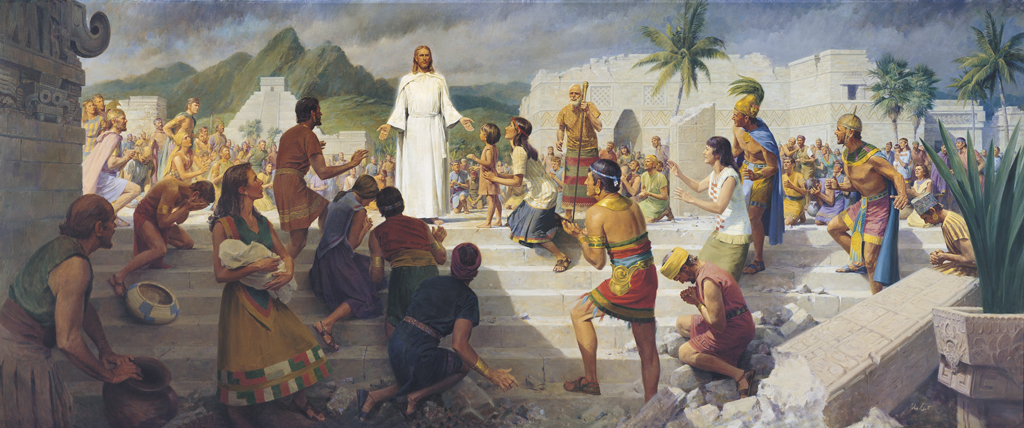
In the day of atonement the children of Israel came together where? in the temple. In the Americas, it was at the temple that Christ appeared to them. The temple is the House of the Lord, and he invites us to visit Him in His home. The temple is where we receive the greatest blessings God can offer.
Third:
Experience Zion in the temple with your ward on stake temple night (and bring a friend).
My third invitation to us all is to
By this I mean, I would ask all members of the stake holding a recommend to make a special effort to be with your ward at the assigned time so we can experience Zion as wards together in the temple. I will explain that more, but before I do, for those who do not hold a temple recommend, I want you to know that the Savior loves you and I love you. I do not judge you and I would love to talk with you. Just contact me or brother mcconnell, my executive secretary and schedule a time. I look forward to our visit.

Important that our leaders lead the way in this. Young father or mother struggles to get home from work, get a baby sitter, rush to the temple to make the ward session, and there are only two or three people there from the ward. Very few ward leaders are present. Why did I struggle so hard to get here? I guess it is not any big deal. It is not taken seriously. Although I have had a less than supportive attitude in the past, I have repented of that, and I did so before receiving this calling. I want you to know that it is a big deal.
The blessings of the temple are great.
Bless families
Inspiration to bless our lives
Resistant to sin-less and less appealing. Becoming repugnant.
Feel the love of the Lord
The temple is about Gospel Hope. Hope comes from faith. Hope Is what happens when we really and truly trust Heavenly Father and Jesus Christ and their promises, apply them to our lives and our future, feel the spirit testify of their love for us individually. Hope is what happens when we give our hearts, come unto Christ as a little child and receive a spiritual assurance of a place on the right hand of God in heaven.
Perfect brightness of hope. Live our lives encircled about by the arms of safety and love.
The temple is all about hope. Initiatory. Endowment. Progression through degrees of glory and ending up in the celestial room. What is the message?
Temple is all about Zion. All are dressed in white. No class distinctions. No designer clothes. All the same. We learn about the law of consecration, which is found in the doctrine and covenants. Under the law of consecration, what do we commit to? To building up and establishing Zion. We can commit together to become Zion people with the very people we will be working together with to build Zion.
No poor among us, to bear one anothers burdens that they may be light. . The temple is atonement focused, and we pray in Christ-connected unity for those on the prayer roles. Our hearts go out to those in need, those who are poor in any way.
I promise you, my dear brothers and sisters that as we gather at the Savior’s feet at the temple like the nephites of old, we will come to know Him better, we will feel His mercy and grace in our lives more fully. And we will become a Zion people. I love you dearly, my brothers and sister, and I testify of our Savior’s great love
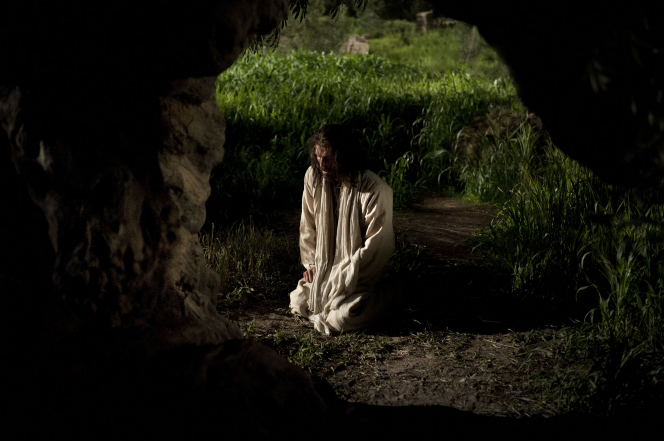
Our First Priority:
Partake of God’s love regularly.
Lehi’s vision of the tree of life teaches us to hold to Christ and move forward until we partake of God’s love, then to stay at the tree and continue partaking. We do this by developing thought patterns of faith, trusting our Savior and our Heavenly Father and their love for us. We do this by feasting on the word of God and praying in faith and humility daily. We do this by trusting that our Savior understands us completely, is our advocate, and will help us move forward on this path. We do this by understanding that our Savior is not only our advocate, but the advocate of each person with whom we interact. Satan is the accuser, the slanderer. Our Savior’s love and forgiveness is so much more powerful than we are. If we receive it we are filled with light and it proceeds right on through us to shine on others. There is no way to receive His forgiveness and at the same time prevent it for being extended to others. The only way to stop the light of His love from shining through our hearts to others is to prevent it from entering our hearts. Once it is there, it shines on everyone.
In the Book the Hiding Place that good Brother Martineau gave me many years ago, it tells of Corrie TenBoom and her sister Bessy, who were sent to a concentration camp for hiding Jews from the Nazis. They had grown up in a beautiful Christian home where they read from the Bible every day and practiced love and kindness. They clung to their faith, witnessed of Christ in the most difficult of circumstances, and blessed many others. One day they witnessed a guard, known for her cruelty to all prisoners, beating an elderly woman mercilessly. Bessie said, ‘Oh, Oh, the poor woman, we must pray for her.” Then Corrie realized that Bessie was talking about the guard. The truth is that people’s offenses carry their own serious penalties and limit their happiness, and we should feel more sorry for the sinner than the one sinned against. And the Savior loves all sinners. He knows that we tear and injure our souls when we have sin and enmity in our hearts. He knows our great anguish and suffering because he bore it all in the atonement. Because understands their pain and loves them so much, Jesus taught us to
Luke 6:27-28 Love your enemies, do good to them which hate you, Bless them that curse you, and pray for them which despitefully use you.
He taught us to not judge others, but to love and have charity, patience and longsuffering in our hearts. Thus, we receive the Savior’s love most fully as we allow it to shine in and through us so that we feel it radiating to those around us.
D&C 121 Let thy bowels … be full of charity towards all men, and to the household of faith.
Galatians 6:10 let us do good unto all men, especially unto them who are of the household of faith.
Why especially? Because it is a lot harder to love people you are closest to
Do I think changes need to be made in the Church? Yes, I do. We are imperfect people striving for Zion. Many great and important things are yet to be revealed. But the order in which we strive is important. Until we get to the point that we can pray and be confident in receiving answers from God, we should not be overly confident that our judgments about what needs to happen are accurate. If our connection with God is not right, we have more important things to worry about than fixing other Saints or the Church. We should strive to improve first ourselves, then our own church service, then the church organizations.
With regard to unity in the Church I want to share a simple principle from the vision of the tree of life that helps us make important judgments and helps us become happier people.
The internet is great and spacious, and it is out there floating it the air. Notice the great and spacious building in this picture how it has no foundation. The builders did not dig deep in their souls and build upon the Rock of our Redeemer. How do we know that they are not build upon the rock of Christ? Because they are accusers, not advocates.
In Lehi’s dream, some people arrived at the tree, partook of the fruit and then started looking around as though they were ashamed. Then Lehi noticed the great and spacious building with people mocking and pointing the finger of scorn. They carried the spirit of the accuser, not the spirit of the advocate.
Lehi points out that all those who heeded the pointing and mocking from the great and spacious building, fell away and left the tree.
Notice the fruit on the ground. Receiving God’s love became so unimportant to them that they dropped it. It became unimportant because they could not feel it any longer.
I am not suggesting that everything on the internet is evil, but I give you a sure way to judge. If it helps you have the spirit of the advocate towards the church and others, including those of other opinions, it is good. If makes you feel the distressing spirit of the accuser, it is not of Christ. We bring about change much more effectively when we are working from a spirit of love and understanding. So much political rhetoric is hateful and evil. Joining an internet group is not an inconsequential decision. We must judge in our heart how it affects our spirit.
There is another group of people in Lehi;s dream. They arrived at the tree, fell down (in humility and gratitude) and then partook of the fruit. They all remained at the tree.
I love this picture of the woman kneeling humbly beneath the tree. Humble faith is the key, with an emphasis on humble.
In summary of the first priority, may come to the tree and receive divine love so that we are imbued with the spirit of the advocate. When the love of God and Christlike charity dwell in our hearts, we will be happier than we have ever been and nothing will be able to keep us from Zion.
And along with the Savior, we will have the abundance that enables us to reach out to to others with open inviting arms of love. Along with the Savior, we will be able to say, come unto me all ye that labor and are heavy laden, and I will give you rest too. Here is a safe place to learn and grow. I too am your advocate.
Second:
Make the sacrament a weekly day of Atonement.
Let me explain about the day of atonement
Most sacred and holy day of the entire year under the law of moses
Serious
More Easter than christmas
A day of prayer, penitence and fasting.
Culmination of the day. People gathered at the temple.
Two goats were brought before the high priest.
Lots were cast to select one goat as a sacrificial offering and the other as the scapegoat. The first goat was sacrificed on the temple altar.
The scapegoat was brought in front of Aaron, the High Priest. The Book of Leviticus tells us what was next:
And Aaron shall lay both his hands upon the head of the live goat, and confess over him all the iniquities of the children of Israel, and all their transgressions in all their sins, putting them upon the head of the goat.
Then what happened to the goat laden with so many sins? Did they kill and sacrifice the goat? No. The sacrificial offering had already been made.
A fit man simply led the goat out of the temple, out of the temple grounds, out of the camp of Israel, out into the wilderness, and let it go.
The goat was simply released, and left alone, never to return.
The first goat represents Christ’s atoning sacrifice in which Christ’s blood was shed and life was given. The second goat represents what that sacrifice means for us. The promise of cleansing, forgiveness and freedom from the past.
So, what would that experience be like for you if you participated with sincerity and real intent? Near the end of a day of penitence and fasting, you would arrive at the temple with a heavy heart, feeling burdened. You would be aware of your unkindness, dishonesty, pride, selfishness and other failings. You would feel sorrow for those of your family, neighborhood or community you had hurt or offended. All of them would be there. Then you would watch as all of your sins were confessed on the goat and placed on its head. Then you would see that goat led away, until it disappeared in the distance.
Suddenly you would feel clean and free. A completely fresh start. A clean slate. All of the burden of past transgressions and offenses was gone. If you had offended someone, it was gone. If someone had offended you, it was gone as well. Past offenses had been removed and could no longer be a consideration. There was a fresh start individually and in all relationships throughout the entire community. What an amazing feeling of relief and freedom and peace! What joy! What Zion!
This is what we can experience each week as we partake of the sacrament, all of us together. During the sacrament, we can think of the Day of Atonement. We can trust that my sins are gone and that the sins of others are gone as well. We can honestly forgive others their slights against me, and trust that we are forgiven by them as well. I love that feeling of freedom to move forward in all relationships with a spirit of peace and goodwill. As we exercise faith in Christ, the past will no longer be burden holding any of us back. We can move forward with a world of possibilities ahead of us, believing in the best that is in us.
In the day of atonement the children of Israel came together where? in the temple. In the Americas, it was at the temple that Christ appeared to them. The temple is the House of the Lord, and he invites us to visit Him in His home. The temple is where we receive the greatest blessings God can offer.
Third:
Experience Zion in the temple with your ward on stake temple night (and bring a friend).
My third invitation to us all is to
By this I mean, I would ask all members of the stake holding a recommend to make a special effort to be with your ward at the assigned time so we can experience Zion as wards together in the temple. I will explain that more, but before I do, for those who do not hold a temple recommend, I want you to know that the Savior loves you and I love you. I do not judge you and I would love to talk with you. Just contact me or brother mcconnell, my executive secretary and schedule a time. I look forward to our visit.
Important that our leaders lead the way in this. Young father or mother struggles to get home from work, get a baby sitter, rush to the temple to make the ward session, and there are only two or three people there from the ward. Very few ward leaders are present. Why did I struggle so hard to get here? I guess it is not any big deal. It is not taken seriously. Although I have had a less than supportive attitude in the past, I have repented of that, and I did so before receiving this calling. I want you to know that it is a big deal.
The blessings of the temple are great.
Bless families
Inspiration to bless our lives
Resistant to sin-less and less appealing. Becoming repugnant.
Feel the love of the Lord
The temple is about Gospel Hope. Hope comes from faith. Hope Is what happens when we really and truly trust Heavenly Father and Jesus Christ and their promises, apply them to our lives and our future, feel the spirit testify of their love for us individually. Hope is what happens when we give our hearts, come unto Christ as a little child and receive a spiritual assurance of a place on the right hand of God in heaven.
Perfect brightness of hope. Live our lives encircled about by the arms of safety and love.
The temple is all about hope. Initiatory. Endowment. Progression through degrees of glory and ending up in the celestial room. What is the message?
Temple is all about Zion. All are dressed in white. No class distinctions. No designer clothes. All the same. We learn about the law of consecration, which is found in the doctrine and covenants. Under the law of consecration, what do we commit to? To building up and establishing Zion. We can commit together to become Zion people with the very people we will be working together with to build Zion.
No poor among us, to bear one anothers burdens that they may be light. . The temple is atonement focused, and we pray in Christ-connected unity for those on the prayer roles. Our hearts go out to those in need, those who are poor in any way.
I promise you, my dear brothers and sisters that as we gather at the Savior’s feet at the temple like the nephites of old, we will come to know Him better, we will feel His mercy and grace in our lives more fully. And we will become a Zion people. I love you dearly, my brothers and sister, and I testify of our Savior’s great love
“Humility”
President Blaylock's Address

Good morning, brothers and sisters. My topic today is humility.
Follow the Savior’s Example
We can learn by looking to the Savior’s example. At the Feast of the Tabernacles, Jesus went into the temple and taught: “My doctrine is not mine, but his that sent me. … He that speaketh of himself seeketh his own glory: but he that seeketh his glory that sent him, the same is true, and no unrighteousness is in him.” Later Jesus testified: “I do nothing of myself; but as my Father hath taught me, I speak these things … for I do always those things that please him. … And I seek not mine own glory.”
Jesus taught us to serve. When James and John’s mother came to Him and asked that her sons have the privilege of sitting on the right and on the left in His day of glory, He called His disciples to Him, reminded them that “the princes of the Gentiles exercise dominion [and authority] over them and then taught them that “it shall not be so among you.” Rather, “whosever will be chief among you, let him be your servant: Even as the Son of man came not to be ministered unto, but to minister.” In one of his last acts, he washed His disciples’ feet and then taught them that as he washed their feet, so ought they to wash one another’s feet.
Jesus focused on others. To the woman who touched his garment and the leper who were both healed, he said to them “thy faith hath made thee whole,” emphasizing the role of their faith in their healing.
Be Teachable
We develop humility as we are teachable. The Savior called a little child to him and taught, “Whosoever therefore shall humble himself as this little child, the same is greatest in the kingdom of Heaven.” (Matthew 18:4) King Benjamin taught that we should become “… as a child, submissive, meek, humble, patient, full of love, willing to submit to all things which the Lord seeth fit to inflict upon [us], even as a child doth submit to his father.” (Mosiah 3:19)
In speaking of young children, we often comment on their lack of obedience and willingness to follow our direction. We watched five of our grandchildren last summer for two weeks. By the end of their visit, I had decided that the best way to get our 3-year old grandson to mind was to ask him to do the exact opposite of what I wanted him to do.
Yet, isn’t King Benjamin’s description of children, “submissive, meek, humble, patient, full of love …” a more accurate description of their nature? Children are inquisitive and loving. They are teachable. You have watched them as they follow their parents and siblings around mimicking their actions and deeds.
In the first two verses of the 1st section of the Doctrine and Covenants, the Lord speaks to you and to me. He says: “Hearken, O ye people of my church … listen together. For verily the voice of the Lord is unto all men …” (D&C 1:1-2) Consider the Lord’s counsel. We are not just to listen. We are to listen together. The voice of the Lord is to all men and women.
We may sometimes wonder why we need to get our teachings and direction from someone else. Why can’t we turn to God in prayer and get our own revelation? Why can’t the Holy Ghost inspire us? Why is every call to lead a call to others to listen? Why does even the prophet have a home teacher and a bishop?
We read later in the first section of the Doctrine and Covenants that “the fulness of my gospel [shall] be proclaimed by the weak and simple…” One reason we are asked to learn from others is that it requires humility on our part. We must have a humble heart to be willing to listen to a Sunday School teacher, a sacrament meeting speaker or even a Relief Society president who we may feel is less experienced and less knowledgeable than we are.
President Henry B. Eyring told of an experience he had when he was president of Ricks College (now BYU-Idaho). A priesthood leader came to his home each month to interview him about his home teaching. With him, he brought a large notebook in which he wrote notes. He wrote not only about President Eyring’s report as a home teacher, but also his observations about the gospel and life as well.
President Eyring said that he remembered being flattered by the experience. Then one day both of them were visiting what was then called junior Sunday School. It would now be junior Primary. The speaker was a young girl that was probably six or seven years old. President Eyring looked over at the man and he had the same notebook open, taking notes with the same intensity as he had in President Eyring’s home. The lesson he learned that day was of a brother who had faith that God could speak to him as clearly through a child as through the president of a college.
Regarding the experience, President Eyring said “I watched that man in later months and years deal with great difficulties and with important assignments. I saw miracles-at least to me they seemed to be miracles – in his wisdom and in his ability to lead and to direct. Those miracles came, I believe in large part, because he could hear the voice of God confirmed by the Holy Spirit in words of the weak.”
Accepting Correction
We develop humility as we accept chastening or correction in our lives. The Lord loves those he chastens. (D&C 95:1-2)
Isaac Morley, who lived in Kirtland, Ohio, was an early convert to the church in late 1830. As the saints settled in and around Kirtland early the next year, Isaac graciously allowed them to live on his farm, including Joseph and Emma Smith, who lived in a cabin on his farm for six months in 1831.
During that time, in June 1831, Isaac Morley and Ezra Booth were called to serve a mission. Several others were called to serve at the same time, including Joseph Smith and Sidney Rigdon. The mission to Missouri was difficult and was not as successful as some expected. In a revelation received on August 1, they were told to return to their homes.
Shortly after Joseph Smith returned to Kirtland, he received the following revelation:
“Let my servant Titus Billings, who has the care thereof, dispose of the land, that he may be prepared in the coming spring to take his journey up unto the land of Zion …
And let all the moneys which can be spared, it mattereth not unto me whether it be little or much, be sent up unto the land of Zion, unto them whom I have appointed to receive.” (D&C 63:39-40)
Titus Billings was married to Diantha Morley, Isaac’s sister. The farm that Titus was commanded to sell was Isaac Morley’s farm. Titus had been caring for the farm in Isaac’s absence.
As Isaac Morley and Ezra Booth returned from their mission to Missouri, Joseph Smith received an additional revelation with these words:
“Behold, I, the Lord was angry with him who was my servant Ezra Booth, and also my servant Isaac Morley, for they kept not the law, neither the commandment.
They sought evil in their hearts, and I, the Lord, withheld my Spirit. They condemned for evil that thing in which there was no evil; nevertheless, I have forgiven my servant Isaac Morley.
“And again … that my servant Isaac Morley may not be tempted above that which he is able to bear …, I gave commandment that his farm should be sold.” (D&C 64:15-16, 20)
Ezra and Isaac had been criticizing Joseph Smith. Ezra, among other reasons, was upset that Joseph Smith and Sidney Rigdon had begun their journey to Missouri in a wagon, while he and Isaac were called to walk the entire way, preaching as they went.
So, what happened to Ezra Booth and Isaac Morley? Ezra’s discontent and murmuring was such that he was excommunicated five days after returning to Ohio. In the ensuing months, he published nine letters in the Ohio Star detailing his objections to the Church. Ezra Booth ultimately abandoned Christianity and become an agnostic.
We don’t know what temptation Isaac Morley would have that would have been above his ability to bear. We do know what he did. Isaac Morley accepted the chastening he received from the Lord through Joseph Smith, the prophet. In October 1831, Titus Billings sold much of Morley’s farm. Isaac gathered his family and moved to Missouri. In 1845, mobs burned down his house, cooper’s shop and destroyed his grain. His wife, Lucy, passed away in Winter Quarter’s in January 1848. Still, Isaac Morley remained faithful. He reached the Salt Valley in 1849, traveled 100 miles south and settled what is now known as Manti. When Sanpete was organized as the fourth stake in Zion, Isaac Morley was called to serve as the stake president. Later, he moved to Salt Lake and served as the alternate patriarch of the Church. Isaac Morley exemplified the words of one of our hymns, “… if, by a still, small voice he calls to paths that I do not know, I’ll answer, dear Lord, with my hand in thine: I’ll go where you want me to go.”
A few years ago, I was attending a class taught by a BYU religion professor who shared Isaac Morley’s experience. He said that when he talked of Isaac’s experience in class, he often asked the class to raise their hands if they were descendants of Ezra Booth or Isaac Morley. Students regularly raised their hands as being descendants of Isaac Morley, but rarely for Ezra Booth. Isaac Morley’s testimony and his faith were sufficient to enable him to accept the chastening of the Lord through his prophet and press forward. His choice has blessed his posterity for generations.
Pioneers
On Tuesday morning, we leave for Trek. The pioneers who travelled the path to Zion left us a great legacy. One such pioneer who has special meaning to me is Alice Lavender, my great-great grandmother. Alice was born in Bedford, England in 1828. She grew up in modest, but relatively comfortable circumstances. In 1855, Alice heard the story of the restoration of the gospel from missionaries and was baptized. She emigrated to the United States, traveling across the plains by ox team with her two young children, James, age 7, and Alice, age 2, and arriving in the Salt Lake Valley in 1861. Of the time shortly after arriving in Salt Lake, she wrote “Brother Field stepped up and asked me to marry him. He was a good man, and kindly, and wanted to take care of me and to shield my babies from harm and want.” John Field, whose wife, Susannah, had passed away, was twenty years older than Alice. From the time she left England, Alice’s life was full of hard work and significant hardships that was typical of many pioneer women. John and Alice had six children. The oldest was 13 when John passed away and Alice was left to take care of them. Five of her eight children didn’t live past early adulthood, including her daughter who crossed the plains at age 2. Her daughter was expecting a baby and near full-term when she died in a fire at home.
Alice Lavender wrote of the day she was married to John Field:
“On the 5th of April 1862 … I was sealed to John Field for time and eternity…
We lived in a lean-to log house with a ladder leading up to an attic…. There was straw up there on which to make our beds. I crawled into it with my two small children, and for no reason cried myself to sleep.”
Alice’s granddaughter, Edna Field, my grandmother, wrote of reading this passage regarding Alice’s wedding day, “As I read [her words] I remembered a conversation of long ago. She had been telling me of her better circumstances in England. I asked her, ‘Grandma, do you not sometimes regret having come to America?’ Her answer was memorable. She said, ‘Never: The gospel is worth all and more than I have sacrificed.’”
There is another kind of pioneer. Last November, my son, Nathan, received a Facebook post from someone asking if he knew Gary Blaylock. We were out-of-town so Nathan emailed me asking if I knew a Carlos Trobat. Carlos was my missionary companion forty years ago in Goya, Argentina. I contacted Carlos and we began corresponding. Carlos was introduced to the gospel and joined the church when he was 18 years old. He was the only member of the church in his family. In his early 20’s he was called to serve a mission.
When we began serving together in Goya in January 1977, there were no active members of the church in the city. We served together for four months, had many opportunities to teach and loved serving together as companions. I wrote in my journal our first week as companions “He is helping me to strengthen myself and always supports me and makes me feel good even when I make … [mistakes].” On December 23 last year, Carlos’ birthday, we spoke for the first time in nearly 40 years. Carlos talked to me of his family, his work and his gospel service. I truly felt as Alma wrote of his reunion with the sons of Mosiah, “… Alma did rejoice exceedingly to see his brethren; and what added more to his joy, they were still his brethren in the Lord…” (Alma 17:2)
Carlos’ decision to join the church by himself as an 18-year-old has forever changed and blessed his family. There are many here today who can say the same. Your choices and your decisions have and will continue to bless your children, your grandchildren and others eternally. Just as many are grateful that Isaac Morley humbled himself and accepted chastening from the Lord through Joseph Smith, many will sing praises of gratitude for your lives. You are pioneers in every sense of the word to those who come after you. Let’s leave the same legacy to our children and those around us as others have done for us. I say this in the name of our Savior, Jesus Christ, amen.
Comments
Post a Comment